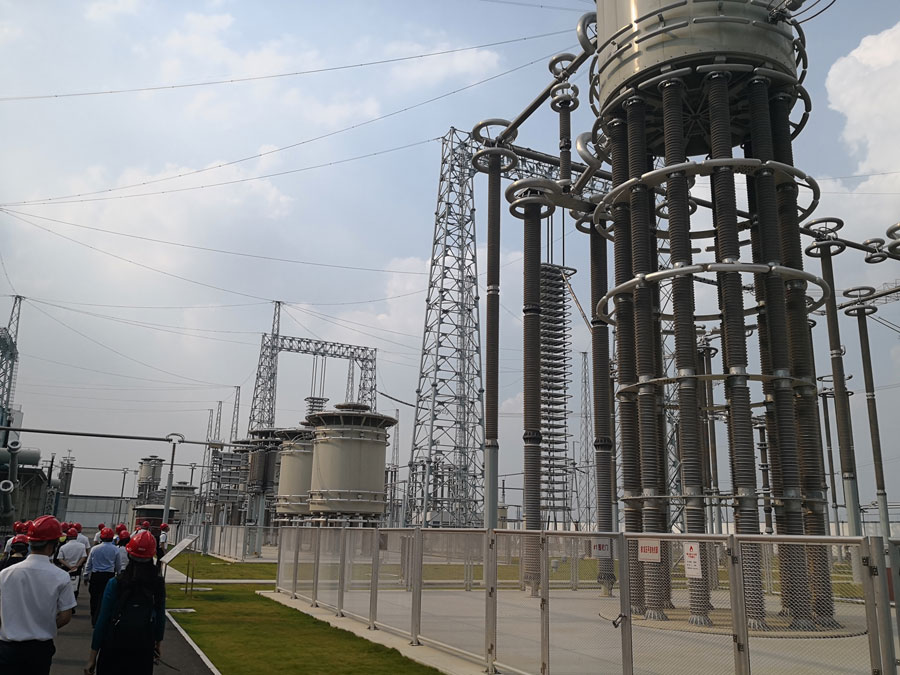Fund to boost financing needs of central SOEs


New credit assurance mechanism to help reduce bond defaults of enterprises
China has established a bailout fund with a fundraising target of 100 billion yuan ($14.24 billion) to support centrally administered State-owned enterprises short on cash in order to avoid possible bond defaults, said the country's top State-assets regulator.
Supported by 32 central SOEs, such as State Grid Corp of China, the credit assurance fund to date has raised 10 billion yuan. It is designed to provide emergency financial funding to central SOEs with short-term cash-flow issues resulting in an inability to prevent defaults, the State-owned Assets Supervision and Administration Commission of the State Council said in a statement on July 23.
China Reform Holdings Corp Ltd, a central SOE specializing in capital management and investment, will handle the fund to manage the risks of central SOE bonds in particular.
The fund will be operated and managed in accordance with the principles of "limited assistance, emergency protection, risk control and market rule-based operation", and will actively manage the risks of central SOE bonds, enhance their overall credit record and ensure stable operation of the financial markets, said Zhou Yubo, chairman of Beijing-based China Reform.
Founded in 2010, China Reform reported 420 billion yuan in assets by the end of 2019. The company posted a net profit of over 10 billion yuan last year.
In the face of a complex and severe global economic situation with growing uncertainties, the fund will enrich central SOEs' capital channels and help them better deal with systematic financial risks, said Yuan Ye, SASAC vice-chairman.
Since China aims to build a group of world-class, benchmark SOEs that lead in high quality development, Yuan said empowering State-owned investment and asset-operating firms will boost the government's ability to better serve the real economy.
Currently, there are 5,090 bonds issued by central SOEs with the highest issuer credit rating of "AAA".These securities account for 75.8 percent of all bonds issued by SOEs, which shows that the majority of these groups pose low credit risk, said CITIC Securities Co Ltd.
As the operational and financial structure of central SOEs improves, they will see constant increases in their ability to ward off risks. The government will push central SOEs to advance mixed-ownership reforms and improve modern corporate systems in the second half, said Peng Huagang, SASAC secretary-general.
Peng said the commission will complete the task of relieving SOEs of their obligations to operate social programs, and resolve their other long-standing issues as much as possible.
China's central SOEs received more than 110 billion yuan in social capital via equity transfers, new joint ventures and mergers in the first half, during which the companies made strides in mixed-ownership reforms and State capital investment, SASAC added.
As China is keen to steer the economy toward innovation and technology-driven high-quality growth through effective reforms, automaker Volkswagen AG spent 1 billion euros ($1.12 billion) in late May to acquire a 50-percent stake in a subsidiary of Anhui Jianghuai Automobile Group Corp, or JAC.
The German company will increase its stake in the joint venture JAC Volkswagen to 75 percent from 50 percent soon, marking the first case of foreign capital being involved in the mixed-ownership reform of a State-owned automaker in China.
The deal, which is expected to be concluded this year, will help Volkswagen gain management control of JAC Volkswagen, paving the way for more electric car models and infrastructure across China.
The reform will not only generate fresh commercial vitality and diversify global sales channels for central SOEs, but also introduce a market-oriented remuneration system to better reward outstanding performance and incentivize innovation, said Zhang Yongjun, a researcher at the Beijing-based China Center for International Economic Exchanges.
With China's early recovery from the COVID-19 pandemic and its reform measures, central SOEs realized 438.55 billion yuan in net profits in the January-June period, down 37.7 percent from the same period last year, narrowing by 12.6 percentage points compared with the decline in the first five months, government data showed.




































